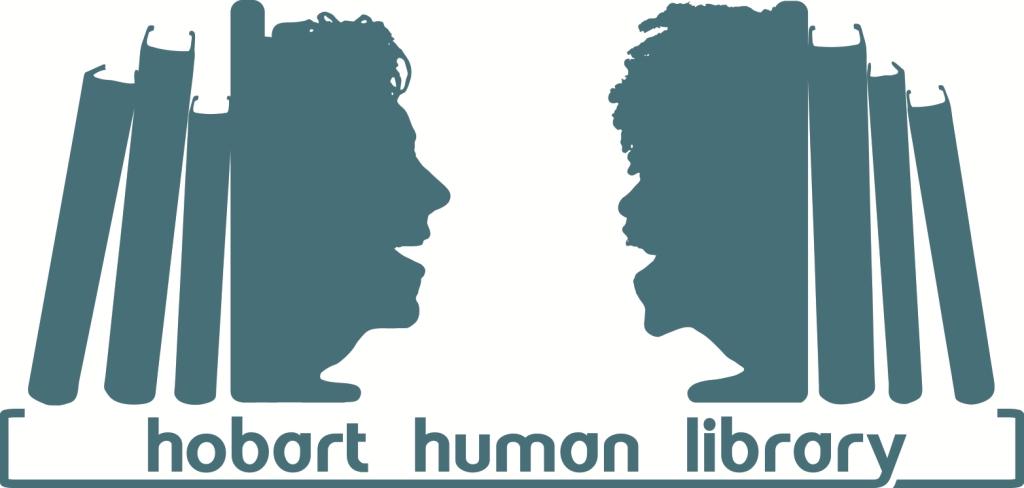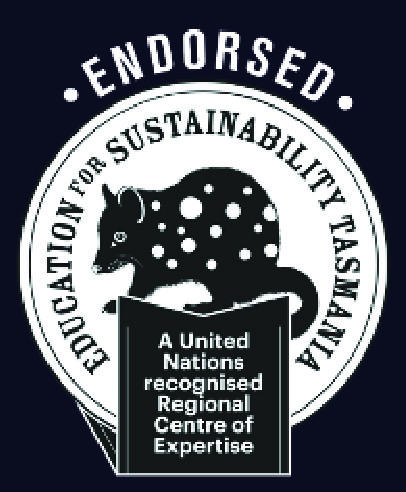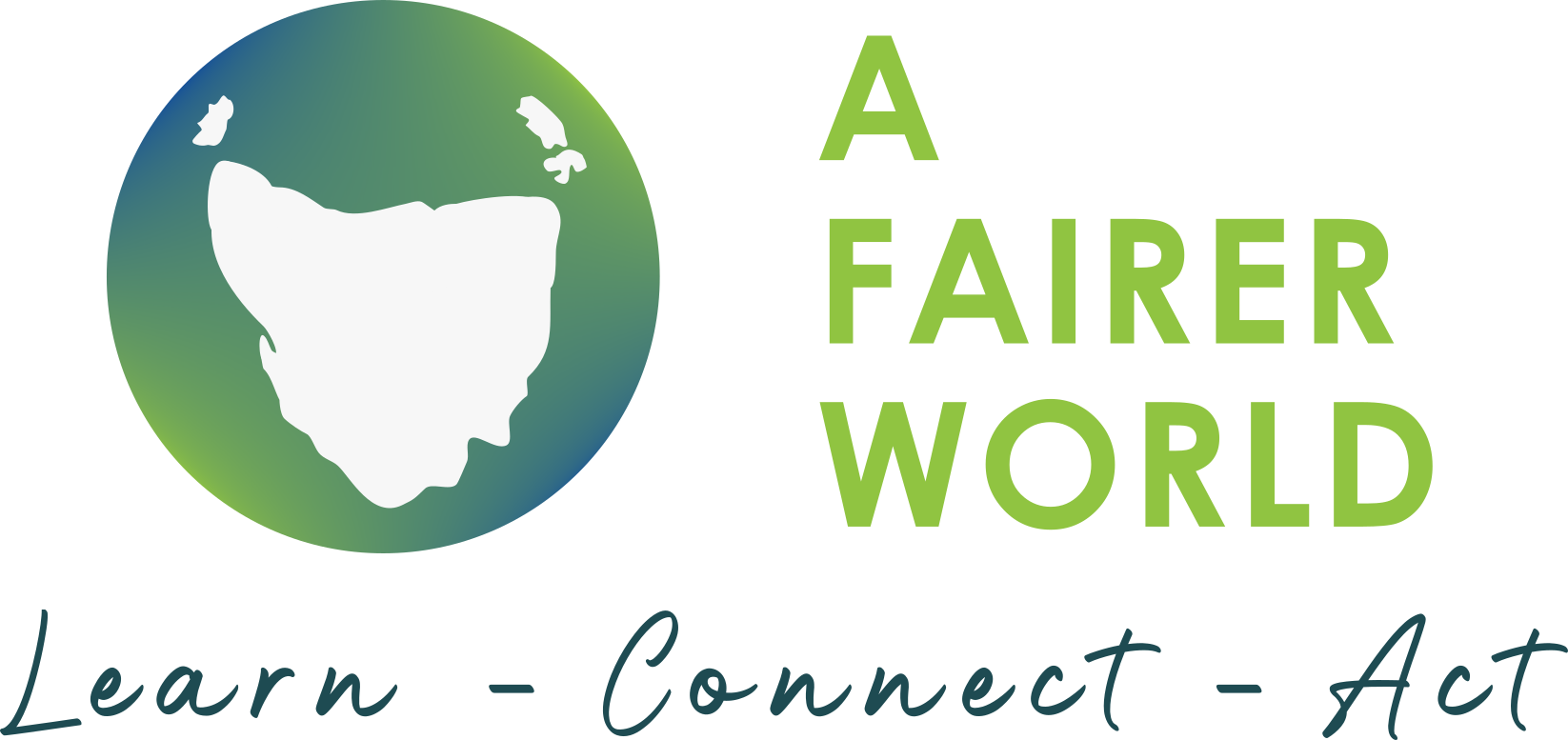Hobart Human Library
“Thank you. The ‘books’ (and the organisers) are heroes of humanity. Very grateful.”
CSIRO staff member
Don’t judge a book by its cover!
The Hobart Human Library uses the art of storytelling to break down barriers and build empathy. It provides a safe space for ‘readers’ to speak informally with a human ‘book’.
The Hobart Human Library offers a small group workshop or a shorter Inclusion Forum. Both are available in person, by Zoom or as a flexible online course.
Human ‘books’ are Tasmanians who have experienced stereotyping, prejudice or discrimination and have trained as community educators. Their personal experience of prejudice or stigma may be as a result of their culture, religion, gender, sexual orientation, appearance, mental health, or a disability.
For schools
Hobart Human Library workshops support Tasmanian education priorities including Respectful Schools, Respectful Relationships Education, and the Child and Student Wellbeing Strategy. It is also the first step in our Let’s Get Together diversity education program. Read more below about the learning intent and curriculum links.
“What Bothwell District High School students want to tell you about the Hobart Human Library:
…that some of the peoples stories are amazing and don’t judge a book by its cover.
…that it’s a great learning experience.
…try out the Hobart Human Library. It is awesome.
…I defo recommend it.”
The students’ average rating for enjoyment was 9.2 out of 10
For workplaces
The Hobart Human Library is the first workshop in our Diversity and Inclusion Training Program. Other workshops include Unconscious Bias & Inclusive Language, and Inclusion Strategies. The Hobart Human Library can also be booked for conferences and other events. Read more below.
“I have had great feedback from attendees from our library about the engagement, learning and thought provoking nature of the event. I personally had attended the human library 2 years ago and gained even more the second time around. I still think about some of the ‘books’ I read 2 years ago and use their stories to help me in my work with clients, staff and the broader community. I hope the Huonville catchment team in the library will take some time to reflect on the session and how we can use our learnings to better develop and refine our services to meet the needs of a the wonderfully diverse community that we live and work in.”
David Gutteridge, Director, Strategy and Engagement, Libraries Tasmania


Hobart Human Library workshops in workplaces and schools are run like a ‘speed dating’ forum, with groups of 4-6 people ‘reading’ a ‘book’ for 10 to 20 minutes then moving on to another ‘book’. Groups get to hear the stories of 4 different human ‘books’ and ask questions.
Workshops run for 90 to 120 minutes to suit client needs.
Short introduction and debrief sessions ensure that participants have an opportunity to discuss the links between empathy, stereotyping, prejudice/bias and discrimination.
Feedback is collected at the end of all workshops and provided to the client.
Download the Hobart Human Library brochure or contact us for a tailored quote or to make a booking.
The Inclusion Forum format is offered as an alternative to the small group workshop. It is ideal as a taster or refresher, for schools or workplaces, or for larger audiences, such as at conferences.
Like the workshop, an Inclusion Forum uses the art of storytelling to break down barriers and build empathy. It provides an opportunity for audiences to hear the personal experience of prejudice from 2 to 4 human ‘books’ and ask questions in a Q & A we call, “You can ask that!”
An Inclusion Forum can be from 60 to 120 minutes and is delivered either in person or virtually using Zoom. It can cover one or two themes, for example gender, sexuality, disability, culture or mental health.
For workplaces in Hobart, the Inclusion Forum is a perfect ‘lunchbox’ session. Staff can explore selected diversity themes and ways of being more inclusive in a relaxed setting.
Feedback: The average rating by RACT staff for a lunchtime Inclusion Forum was 9.7 out of 10. These are some of their comments:
- It was just so good to be able to be in a room feeling safe and having no judgement.
- Hearing stories. Chloe and Andy are awesome!
- It was great to have a Q and A session after Chloe and Andy and for them to be so open answering our questions.
- Loved it all.
Download the Inclusion Forum brochure or contact us for a tailored quote or to make a booking.
Feedback from over 300 workshops shows that the Hobart Human Library, in either the small group or Inclusion Forum format, is an effective way to build empathy and an increased awareness of the effects of bias. It’s an innovative and interactive professional development workshop that engages staff and contributes to creating positive cultural change in workplaces.
It is strongly recommended that workplaces engage with the other workshops available in our Diversity and Inclusion Training Program to best build an understanding of unconscious bias and practical strategies to do inclusion better, both personally and organisationally.
All workshops in the Diversity and Inclusion Training Program are co-delivered with our community educators, who have personal experience of discrimination.
A visit from the Hobart Human Library will support:
- Tasmanian education priorities: the Respectful Schools; Respectful Relationships Education; and the Child and Student Wellbeing Strategy.
- The General Capabilities of the Australian Curriculum, in particular the development of personal and social capability, ethical understanding, and intercultural understanding.
- The content in a number of Australian Curriculum Learning Areas, particularly Health and Physical Education. There are also opportunities to engage with other Learning Areas especially in English, Civics and Citizenship, History and the Arts.
Learning Intent
The Hobart Human Library can be used to:
- widen perspectives of the pervasiveness and implications of stereotyping through hearing first-hand the stories of people who have personally experienced the effects of discrimination;
- explore what makes up identity and how this can shape our experiences of inclusion and exclusion;
- extend appreciation of diversity and human rights; and
- develop empathy, empathetic listening and perspective-taking.
Have you ever wondered what it’s really like to seek asylum in Australia by boat? Or maybe you’re curious about what it would be like to come out and tell your loved ones you’re gay?
The Hobart Human Library provides an opportunity to have conversations with individuals whose experiences we may not otherwise get to hear directly.
All of the human ‘books’ are trained as community educators to talk about their life experiences and answer questions in a safe and engaging way.
We regularly recruit and train new human ‘books’ and generally have over 30 active ‘books’ in our catalogue. Here’s a sample from our catalogue:
The Totem Pole (Paul)
I was a world class mountaineer. Then a falling boulder inflicted a terrible brain injury. Doctors thought I might never walk or talk again. Two decades later I reflect on the longest climb of my life.
Read more about Paul’s story.
Born with Determination (Glenda)
Hear a person of short stature tell her story of challenges, successes and hope in life.
Read more about Glenda’s story.
Female to Me (Andy)
Ever wondered what female to male transgender people are like? Media rarely even mentions FtMs, and our experiences vary greatly from person to person.
Read more about Andy’s story.
From Iran with Love (Marzi)
Discriminated in her homeland and her new home too… the story of a girl from the Middle East who answers oppression with hard work and love.
Read more about Marzi’s story.
The Hobart Human Library regularly recruits and trains new human ‘books’ through our Community Educator Training Program. Some ‘books’ have been with the Hobart Human Library since its inception in 2013 and have told their story over 140 times.
If you…
- have encountered prejudice, stigma or stereotyping and
- would like to share your life experiences to increase understanding and break down barriers
…then maybe you are just the person we are looking for!
All human ‘books’ receive training, cost reimbursement, payment (an honorarium) for each presentation and formal recognition, as well as the satisfaction of making a difference. For many there is also the benefit of improved public speaking and advocacy skills as well as a new network of respectful friends and allies!
“I am a person of short stature and since I have told my story in the Hobart Human Library, I have been amazed at the interest from the ‘readers’ of all ages and from all backgrounds. The ‘readers’ are involved and engaged in the story, and can ask questions at the end. This increases awareness in many different ways: of people who are same-sex attracted, people from other countries, and people with an acquired brain injury or disability, to name just a few.”
Glenda Radcliffe, human book
Download a Human ‘book’ recruitment flyer and Information for human ‘books’, then contact us to let us know you’re interested.
We are always looking for new librarians to join the Hobart Human Library.
Librarians look after the human ‘books’ and help to prepare for workshops. During workshops, librarians monitor the comfort of ‘books’ and readers, assist with activities, and collect feedback. A background in support work or education can be useful in this role.
For a full description, please download Information for Librarians then contact us.
Human libraries are a hugely successful international human rights initiative, created to promote understanding and breakdown misconceptions at a grassroots level.
Danish beginnings
The living library concept was first developed in 2000 by the Danish non-government youth organisation, Stop the Violence. In 2003, the living library became part of the Council of Europe’s programme.
Primarily, the aim of a library with living ‘books’ was “…to create constructive personal dialogues between people who would normally not have the opportunity to speak to each other and thus challenge common prejudices and stereotypes.”
The Human Library (the name was changed from Living Libraries in 2010) has since spread to over 85 countries and is coordinated by the international Human Library organisation based in Denmark.
Australian origins
The first Australian living library was initiated in 2006 by Lismore resident Sabina Baltruweit with support from Lismore City Council.
From 2007-2010 the Department of Immigration and Citizenship funded the creation of Living Libraries Australia as “a national strategy for connecting and strengthening local communities through conversation”. The funding provided for the development of a website and resource kits.
The Tasmanian experience
The Launceston Living Library was created in 2008 as an initiative of the Launceston City Council in partnership with LINC Tasmania and the community at large to promote diversity and perceived safety issues in Launceston. It has been a successful project that continues to run a monthly program with around 20 living books currently catalogued.
In 2013, the Hobart Human Library was formed by a group of organisations including A Fairer World, Hobart Women’s Shelter, Amnesty International, the Community Friends and Networks Programme of the University of Tasmania, and Anglicare Tasmania. The Hobart Human Library further developed the human library experience to be a facilitated professional workshop which could be delivered at schools, workplaces, conferences and community events.
For further information about the history of the Hobart Human Library, download Hobart Human Library history.
